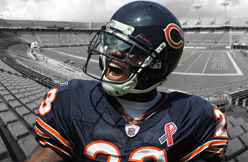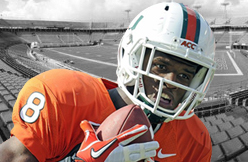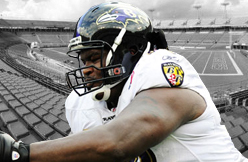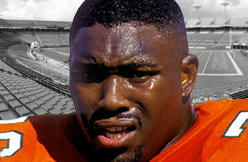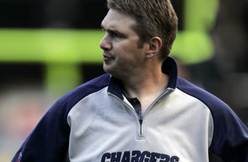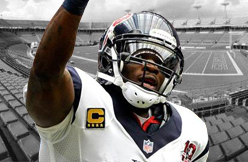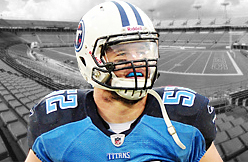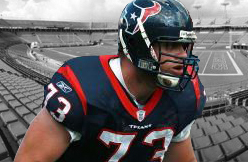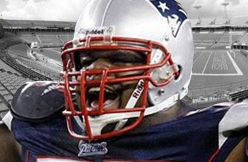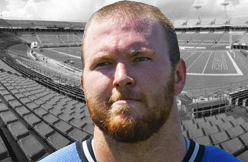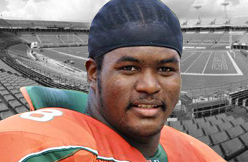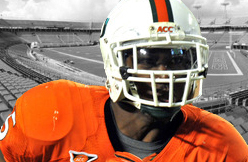SACRAMENTO -- There is an intriguing mystery in the corridors of the Oakland Coliseum, curling through the A's clubhouse and spawning theories among A's fans, baseball observers and scouts who study the game.
What happened to Jemile Weeks?
Sensational enough as a rookie in 2011 that A's general manager Billy Beane identified him as the key component to the team's future, Weeks is at Triple-A Sacramento and without an obvious place in Oakland's long-term plan. When second baseman Scott Sizemore last week sustained a season-ending injury, the A's summoned not Weeks but Andy Parrino, who was acquired from San Diego last November.
The 18 months since Weeks was the franchise poster boy, a sinewy action figure featured on billboards and magnetized team schedules, have been a haze of struggle and disappointment most graphically illustrated by not one but two demotions to Sacramento.
After arriving in Arizona in February hoping to reclaim his role as offensive catalyst and everyday second baseman, Weeks in March was kicked back to Sac for the second time in seven months. He began the season as, of all things, River Cats D.H.
"If he's the next man up, he'd be on the field," a National League scout said last week. "Doesn't sound good for his future in Oakland."
Though the April 10 promotion of Parrino put Weeks back on the field -- at shortstop for the first time in his professional career -- how did it come to this? How does a young man who lit up a franchise become so invisible so quickly?
Some baseball insiders attribute Weeks' offensive decline to an inability to counter-adjust after scouts and big league pitchers compiled a "book" on him. Some observers say his defense is suspect. Still others, fans and baseball insiders, wonder if he crossed Beane, who has first, firm and final say on all things baseball in Oakland.
Weeks, 26, blames his stumble through 2012 on largely losing his offensive identity.
"I was going through a transformation that I didn't need to, trying to create a swing that I had never used," he said recently. "It didn't look right. It was hard to get out of it. I couldn't get out of it. I continued to work on creating that new swing, and I couldn't perfect it. When I tried to go back to what I'm used to, I had lost that."
When River Cats manager Steve Scarsone was asked how Weeks went from face of the Oakland A's to Sacramento D.H., he offered a cryptic response: "That's a good question."
Upon posing the same question to Bob Melvin, Weeks' former manager in Oakland, his chin dropped and his eyes darted downward. He paused and sighed.
"That's the way baseball is," he said. "Some guys come to the forefront when the opportunity is there. If they don't take advantage of it ... it could swing right back in his favor again.
"I wouldn't rule anything out. We did see a guy who really was a dynamic player. I still think he has the ability to do that again, and I wouldn't rule him out. Even this year I wouldn't rule him out."
Weeks' career has been in steep decline since the summer of '11, when he seemingly seized the leadoff spot in Oakland for the next decade. The organization's No. 1 pick in the 2008 draft (12th overall), Weeks was delivering on promise, an exciting blend of speed, skill and athleticism. Over 406 at-bats, he hit .303, with eight triples, both categories leading all rookie regulars. He stole 22 bases.
Not since Miguel Tejada's arrival in the 1990s had an A's prospect so stimulated the fan base.
"He's a great talent, a unique talent," Beane gushed of Weeks in February 2012. "And he's only got a half-year in the major leagues. He's a guy who is very much part of our long-term future."
One year later, as Weeks fights to revive his career, it appears he is on the trade block.
Reminded of his previous statement, Beane acknowledges saying it but concedes that things change all the time in baseball -- sometimes quickly.
Beane says Weeks needs to continue working on his defense. That he is playing shortstop broadens his versatility, while allowing another foundering prospect, Grant Green, an opportunity to play second base. The G.M. insists Weeks has major-league ability and, moreover, works hard to mine it.
"That's never been an issue," Beane said. "One of the reasons everyone was so patient last year is that he does play hard, and he obviously cares. I've never had any concerns about that."
What then? Did he say something wrong, do something improper, fail baseball's subjective "attitude test?" There is rampant speculation that some of Jemile's comments last August, upon being demoted while batting .220, were not sufficiently humble.
"I'm going to be a star in this game, man," he said on his way out of the Oakland clubhouse. "You've got to have ups and downs. It just makes the story so much sweeter when you come back. I don't want to expound too much on it, but you're looking at a star, period."
Recently reminded of those words, Weeks is quick to say they were part of a larger point he was trying to make. He understood why he was being sent to the River Cats, even wondered why it took until late August. He wanted to make it evident his confidence was not shaken, that he believes he has something to offer the A's and that recapturing his mojo was a matter of going back to basics.
"After the first four or five games last year, (A's management) wanted me to work on a different type of game," he said. "The team wasn't hitting, so it was brought to my attention to do whatever it took to get on base to help the team. I tried to do that. I took more pitches. I tried (not to overswing). When I got out front and my swing looked big, the perception was I was trying to hit home runs. I have never tried to hit a home run."
Both Beane and A's hitting coach Chili Davis said they never insisted Weeks take more pitches, only that they believed his swing resulted in too many fly balls. And at 5-foot-9, 161 pounds, Weeks is not going to send many fly balls over the fence.
"It takes a lot to get your mind back into the position where you were in, knowing how good you were," Weeks said. "I've never had a season when I hit .220; that was my first time. It gets frustrating, that people might believe you're a .220 hitter. But I'll just go out this year ... I know I won't do that."
Though there are signs Weeks' stroke is back -- a .379 batting average and .463 on-base percentage through 13 games for the River Cats -- there is no indication he'll be back in Oakland any time soon.
Moreover, every member of the A's who spoke about Weeks, including director of player development Keith Lieppman, floated the possibility of Weeks moving to another organization.
"He is swinging the bat well, getting back to being who Jemile Weeks should be," Davis said. "I hope he continues doing that to get that second chance. He deserves a second chance here."
Parsing through comments from those within the Oakland organization, two more questions bobbed to the surface:
Can Weeks ever regain the form that for four months made him such a dynamic catalyst in Oakland?

(mercurynews.com)



